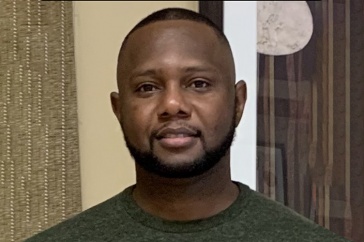
Over the years, Sarah Siegel has held positions in fields as varied as banking and entertainment - as an operations supervisor at the Daytona International Speedway for a NASCAR-themed attraction and history museum. After earning her bachelor’s degree in supervision and management, she became a professional guardian. In that role, she managed finances for elderly Floridians with cognitive or mental health diagnoses.
According to Siegel, becoming a guardian “was a natural progression from my experience working for several years in retail banking, where I became involved in identifying and resolving several fraud and exploitation cases.” Managing and protecting assets and finances for clients also demanded that Siegel examine the complex relationships people have with money and locating estranged family members, using social networking analysis.
With her background in banking, operations and guardianship, she decided to pursue a master’s degree – a goal she had been considering for a while – to acquire “skills and knowledge and pursue some new opportunities.” Siegel conducted research into master’s degrees before making the decision to apply to UNH’s national security and intelligence analysis (NSIA) program. She was drawn to this degree because it combines data analysis and quantitative reasoning to compliment skills she had already acquired. Siegel was accepted into the program and has a goal of establishing herself as a professional in the field of national security.
While pairing a bachelor’s degree in supervision and management with a graduate degree in NSIA may not seem like a natural match, the courses in the program teach critical analysis that enhances Siegel’s management skills and her ability to interpret data and draw conclusions. The courses in the NSIA program, especially Quantitative Research, have taught Siegel “how to incorporate statistics into intelligence analysis.” This marriage of statistical reasoning and intelligence analysis is a key component of the NSIA program at UNH, and Siegel says this has helped her develop a more complex understanding of the field.
“I have come to view intelligence analysis as multidisciplinary, as we have approached analysis using techniques from social science – such as ethnography and interviewing – and from data science – such as statistical analysis and modeling with R coding," she says.
The career opportunities for students of NSIA are many – federal, state and local municipalities, as well as private industry, all need highly skilled individuals. While some students transition into federal employment after graduation, others take a broader view of the options that a degree in national security and intelligence analysis offers. Siegel plans to combine her degree in NSIA with her previous work in care management to serve security needs in public health “as the welfare of local communities is a foundation of national security.”
-
Written By:
Katherine Carlman | UNH Security Studies | Katherine.Carlman@unh.edu



















































